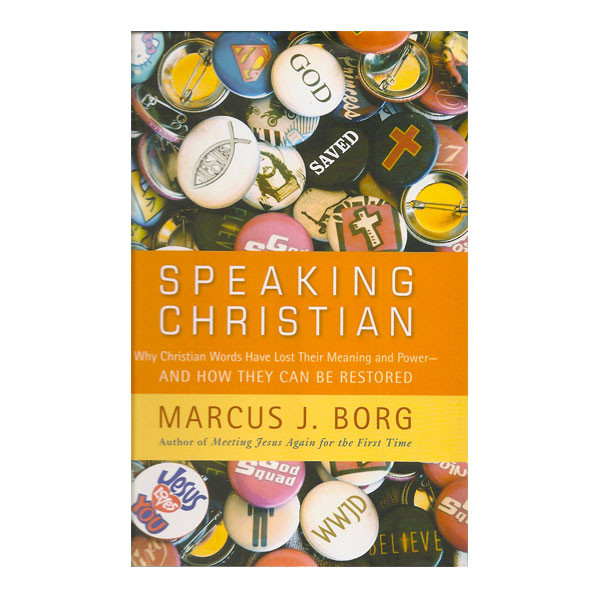Where to buy this book
Speaking Christian: Why Christian Words Have Lost Their Meaning and Power—And How They Can Be Restored
Of Marcus J. Borg’s many works, few have made such an impactful contribution to post modern Christianity as his book, Speaking Christian: Why Christian Words Have Lost Their Meaning and Power – And How They Can Be Restored.
In this book, Borg takes the church of modern Christianity to task for what he calls distorting and distilling the language of the Bible. He specifically accuses the modern church of disconnecting rich, biblical language from its original meaning and context to overemphasize sin and the afterlife.
An insightful read and challenge to post modern Christianity and to contemporary evangelicals, Speaking Christian functions as both a strong indictment against the modern church and what the author hoped to be a refreshing and restorative look at biblical language.
About Speaking Christian
In Speaking Christian: Why Christian Words Have Lost Their Meaning and Power and How They Can Be Restored, the author tackles what he believed to be distortions of biblical language that he ultimately felt were weakening modern Christianity.
The Main Argument
The book argues that the modern church has narrowed the framework within which it interprets Christianity’s important words along with the stories and sacred texts from which they originate.
The book asserts that the largest errors that the contemporary church has made in modern Christianity are:
- Overemphasizing Sin
- The Necessity of Forgiveness
- Jesus’ Death for our Sins – Substitutionary Attonement
- and, Eternity or the Afterlife
The book’s 25 chapters tackle this indictment and provide what the author believed to be richer, more biblically and historically accurate definitions for some of modern Christianity’s most common words and catchphrases.
Looking Into The Book
In the first two chapters, the author spends time explaining what he calls “heaven-and-hell” Christianity, what he identifies as a modern creation that seriously impacts the American church’s understanding of biblical concepts. He also discusses the literalization of language and how that, too, has negatively impacted modern Christianity’s understandings of these terms.
Both of these developments, the author argues, have resulted in a very different understanding of spiritual and biblical concepts than what the pre-modern church held, and one that he argues ultimately distorts and diminishes Christian language.
Through the rest of the book, each chapter addresses a specific term, concept, or phrase, including:
- The Bible
- The Death of Jesus
- Righteousness
- Sin
- Repentance
- Born Again
- The Only Way
- The Rapture
- Heaven
- The Creeds
- The Lord’s Prayer
Verdict
Ultimately, the goal in Speaking Christian is to provide what the author believed to be a more biblically and traditionally accurate understanding for many of modern Christianity’s most used and discussed terms and phrases.
More than just offering a rebuke to the contemporary church, the book aims to offer the 21st century Christian a better language with which to talk about their faith in a transformative way. For those seeking to understand more about the progressive Christian movement or who are seeking out a modern way of understanding the Christian faith, Borg’s Speaking Christian will provide a solid framework.
STUDY GUIDE
For those who would like help in understanding the context of Speaking Christian, please download the study guide to follow along with while reading. It would also be greatly appreciated if you could please offer any feedback you have on the guide once you’ve downloaded it. Thank you!






